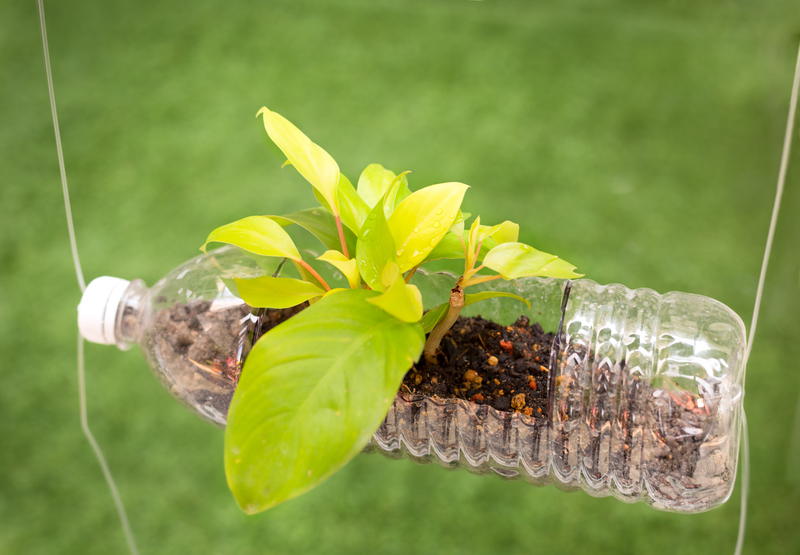Tips for Responsible Pots and Pans Disposal and Donation
When your kitchenware reaches the end of its journey in your home, responsible pots and pans disposal or donation is essential for minimizing environmental impact and helping others in need. This comprehensive guide will walk you through sustainable, practical, and charitable ways to dispose of or donate your unwanted pots and pans. Learn how you can prevent waste, support your community, and make eco-conscious choices when saying goodbye to your old cookware.
Why Proper Pots and Pans Disposal Matters
Every year, thousands of tons of metal, nonstick, and ceramic cookware end up in landfills, where they take centuries to decompose. Improper disposal can also leach harmful chemicals into the environment and squander valuable resources. By practicing safe cookware disposal and seeking out donation opportunities, you not only reduce your carbon footprint but also give your old kitchen essentials a new purpose.

Assessing Your Old Pots and Pans
Before you toss your cookware into the trash, take a moment to assess what you're getting rid of:
- Material Type: Is it made from stainless steel, aluminum, copper, cast iron, ceramic, or nonstick coatings?
- Condition: Is it heavily scratched, warped, or damaged? Or could it still serve someone else with a bit of cleaning?
- Potential Hazards: Nonstick pans with flaking coatings may contain toxic materials and require special handling.
- Reuse Options: Could the pots and pans be upcycled or repurposed around the home or garden?
Knowing the current state of your cookware will help you pick the most environmentally responsible disposal method or find the right donation recipient.
Best Options for Disposing Old Pots and Pans
1. Recycle Pots and Pans Responsibly
Many pots and pans can be recycled, especially those made of metal. Here's how to recycle cookware responsibly:
- Contact Your Local Recycling Center: Not all recycling facilities accept cookware. Call ahead to confirm which materials are accepted and any preparation steps you should take.
- Prepare Your Cookware: Remove plastic handles, lids, or other non-metal parts that the facility may not accept.
- Scrap Metal Yards: Recycling scrap metal at specialized centers is often the best way to dispose of stainless steel, cast iron, or aluminum pots and pans.
- Check for Curbside Collection: Some municipalities offer bulk or metal pickup days. Never put cookware in blue bins unless your city explicitly lists them as accepted items.
Tip: Nonstick or ceramic-coated pans usually require special treatment. Remove coatings if possible (following safety protocols) or take them to a facility equipped to handle such materials.
2. Donate Pots and Pans in Useable Condition
If your old cookware is still in safe, useable shape, consider donating pots and pans instead of throwing them away. Many people and organizations can benefit from your unwanted items.
- Local Charities and Thrift Stores: Goodwill, Salvation Army, and local shelters often accept clean, gently used kitchenware.
- Food Pantries and Soup Kitchens: Many community kitchens are in constant need of extra pots, pans, and utensils, particularly larger or specialty pieces.
- Domestic Violence Shelters and Transitional Housing: Organizations supporting people in crisis frequently need basic household items for individuals starting over.
- Refugee and Immigrant Resettlement Programs: Find agencies or churches working with newcomers who need affordable or free cookware for their new homes.
- Post Online: Share your donation on platforms like Freecycle, Craigslist, Nextdoor, or neighborhood Facebook groups. This keeps the cookware in your local area and reduces transportation emissions.
Before donating pots and pans, be sure to:
- Give them a thorough wash and remove all food residue.
- Check for broken handles, severe warping, or loose parts which could be hazardous.
- Group sets together to make donation easier for recipients.
3. Creative Reuse and Upcycling
Your old pans and pots can find new life beyond the kitchen! Consider upcycling cookware in creative and useful ways:
- Garden Planters: Drill drainage holes and turn old pots into quirky container gardens.
- Storage Solutions: Use deep pots to store tools, craft supplies, or even as ice buckets for parties.
- Decorative Items: Paint and decorate pans to create wall art, clocks, or rustic serving trays.
- Craft Projects for Kids: Old pots make great drum sets, sorting bins, or imaginative play props.
Not only does this keep items out of landfills, but it can be a fun family or community project. Share your upcycled creations online or at local craft fairs to inspire others!
Special Considerations for Modern Cookware
- Nonstick (Teflon) Cookware: Pans with damaged nonstick coatings can release harmful fumes. These should not be donated. Check if the manufacturer or a local recycling program offers take-back or safe disposal options.
- Copper and Cast Iron: Valuable metals like copper and cast iron are highly recyclable and sometimes sellable at scrap yards.
- Induction Cookware: Pots and pans with magnetic bases may have multiple materials; consult with recycling experts for proper separation.
- Glass and Ceramic: Often not accepted in curbside bins but might be accepted at a specialty recycling center or donate if they're in perfect condition.
Frequently Asked Questions About Pot and Pan Disposal
Can I Put Old Pots and Pans in the Trash?
While tempting, putting old pots and pans in the regular trash should be the last resort. Most are made from metals or composites that can be recycled, donated, or repurposed. Only severely damaged, hazardous, or contaminated cookware belongs in the landfill--and even then, consult your local waste management guidelines for safe disposal.
Do Any Stores Accept Cookware for Recycling or Trade-In?
Some retailers like Target, Williams Sonoma, Sur La Table, or Bed Bath & Beyond have offered trade-in or recycling events for old cookware. Check their current policies online or by calling local branches, as offerings may vary by location and over time.
Are Nonstick Pans Safe to Recycle or Donate?
Nonstick pans with intact coatings may be accepted at some donation centers, but facilities rarely recycle nonstick coatings themselves. If the nonstick surface is flaking or peeling, avoid donating to ensure recipient safety and seek out specific recycling or hazardous waste disposal guidance.
Is My Cookware Valuable as Scrap Metal?
Many metal pots and pans--especially made from copper, cast iron, or stainless steel--may have value at local scrap yards. Call ahead to ask about their current rates and accepted materials.
How to Prepare Cookware for Donation or Recycling
Cleaning and Safety
Whether your items are bound for a new home or a recycling center, proper cleaning and preparation ensure safety and maximizes the chance of reuse.
- Scrub off all food residues, grease, and stains.
- Remove any loose, sharp, or broken handles.
- If possible, keep matching lids with pots and pans or label them for easier identification.
For recycling, some centers may require you to separate materials (e.g., removing plastic handles from metal pots). Be sure to follow local guidelines, as inappropriate materials can disrupt the recycling process.

Eco-Friendly Cookware Alternatives
As you replace your old pots and pans, consider choosing cookware with longevity and sustainability in mind:
- Stainless steel and cast iron last for decades and are fully recyclable.
- Uncoated metal pans can be restored and reused repeatedly.
- Ceramic or glass cookware can be recycled more easily than Teflon or plastic-coated options.
- Buy used: Thrift stores, secondhand shops, and online markets offer quality cookware while keeping items from landfill.
Summary: Making a Positive Impact with Pots and Pans Disposal
- Evaluate your cookware before disposal or donation--only pass along safe, functional items.
- Donate to charities, shelters, or resettlement groups to support your local community.
- Recycle at specialty metal centers rather than curbside bins--call ahead for requirements.
- Upcycle creatively for gardening, storage, or decor projects at home or in the community.
- Choose future cookware wisely for durability, safety, and environmental friendliness.
Responsible pots and pans disposal helps reduce landfill waste, conserves resources, assists those in need, and makes your decluttering efforts much more meaningful. Before you throw away that old frying pan or battered pot, remember: there's almost always a greener, kinder way to say goodbye.
Useful Resources for Pots and Pans Recycling and Donation
- Earth911 Cookware Recycling Guide
- Goodwill Donation Center Locator
- Salvation Army Donation Services
- Freecycle Network
Make environmentally responsible choices when disposing of or donating old pots and pans. Every pan thoughtfully recycled or placed with someone in need is a victory for your home, your community, and the planet!